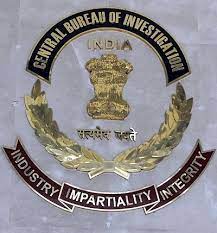
INITIATIVE TO MAKE CBI CONSTITUTIONAL
INITIATIVE TO MAKE CBI CONSTITUTIONAL I RACE IAS : Best IAS Coaching in Lucknow I Current Affairs
Mains Examination: General Studies 2
(Non-constitutional Bodies)
Reference :
- Despite several efforts in the country, the Central Bureau of Investigation ie CBI has not been able to get constitutional validity even after seventy five years of independence.
- As per the recent news, the central government is working towards making the role and functioning of CBI a nationwide institution by bringing it in the statutory category.
About Central Bureau of Investigation (CBI):
- Establishment of CBI was recommended by the Santhanam Commission to prevent corruption. CBI is not a statutory body because CBI was established in 1963 by a resolution of the Ministry of Home Affairs.
- The power to act for the CBI comes from the Delhi Special Police Establishment Act, 1946.
- The motto of CBI is Enterprise, Impartiality and Integrity.
- It is the main research agency of the Central Government.
- The CBI Director is appointed on the recommendation of a three-member committee headed by the Prime Minister. Apart from the Prime Minister, this committee consists of the Leader of the Opposition in the Lok Sabha and the Chief Justice of India or a judge of the Supreme Court nominated by him.
- The term of the Director of CBI was fixed at two years by the Central Vigilance Commission Act, 2003.
- CBI Academy is located in Ghaziabad, Uttar Pradesh. It started functioning in 1996. Earlier CBI trainings were conducted in New Delhi.
- CBI has an important role in the prevention of corruption in governance and maintaining truthfulness and honesty. It also assists the Central Vigilance Commission and the Lokpal.
Major functions of CBI:
- To investigate the cases of corruption and irregularities etc. of Central Government employees.
- Investigating cases of violations of fiscal and economic laws such as laws related to import-export, foreign exchange etc.
- Investigating serious crimes committed by organized gangs of professional criminals.
- Establishing coordination between anti-corruption agencies and various state police forces.
- To inquire into matters of public importance on the request of State Governments.
- Investigating such matters related to the Government of India, which violate the Central Rules with enforcement.
Arguments in favor of considering CBI as a constitutional body:
- The Supreme Court in a judgment in 1990 accepted the validity of the DSPE Act.
- A three-judge bench in 2007 and a constitution bench in 2010 upheld the constitution of the CBI.
- In the famous Vineet Narayan case, the Supreme Court upheld the stand of the present form of the CBI.
- With the expansion of its scope after independence, in 1963, 91 sections of the Indian Penal Code were added to its purview, bringing the crime to cognizance.
- It was made comprehensive by adding 16 other Central Acts and anti-corruption laws.
- On 1 April 1963, V Vishwanathan, Secretary, Ministry of Home Affairs, put it under the Ministry of Personnel under a resolution.
- Despite being an ad hoc body, the CBI functions at three levels. First, the affairs of the Central Government and Union Territories. Second, to follow the order received from the High and Supreme Court, thirdly, to investigate on the request of the State Governments.
- The present structure of CBI works under three branches. First, the Anti-Corruption Branch, second, the Economic Offenses Branch and third, the Special Crimes Branch.
Arguments in favor of considering CBI as an unconstitutional body:
- There is no separate law for CBI. The category, functioning and jurisdiction of the CBI are not fixed. There is a sense of doubt about its impartiality and credibility. For many such reasons, the Gauhati High Court declared it an unconstitutional institution ten years ago through an order.
- At present, CBI is also working under 'Delhi Special Police Establishment Act 1946'.
- The law for the current establishment of CBI is not passed by the Parliament.
- On April 1, 1963, the CBI was formed with a mere one-page resolution by the then Secretary V. Viswanathan. In this sense, the court had considered the then formation of CBI as a temporary measure to meet the extant exigencies.
- In order to give legal shape to this proposal, neither an ordinance was issued nor there was any amendment in the law.
- Absence of Union Cabinet's consent in its establishment.
- Non-approval of its functioning by the President. Therefore, the CBI order is considered to be a departmental order and not a legal order.
- According to the 1946 law by which the CBI came into existence, the permission of the state governments is necessary for registering and investigating crimes in the states. Normally the state governments give permission, but since the High Court itself has questioned the legality of the CBI, many state governments have also withdrawn the consent given. In the last seven years, nine state governments have withdrawn general consent from the CBI.
Supreme Court calling CBI a caged parrot-
- At present, the CBI is a structure controlled by three ministries - Home, Law and Personnel - at the same time. That's why the Supreme Court called CBI a caged parrot and directed to make it an independent and autonomous institution.
Conclusion:
- CBI is an important institution. In future, this institution should not become a toy in the hands of politicians and secondly, its role should be like that of Judiciary, Election Commission and Comptroller and Inspector General of Accounts. Therefore, the government should take some specific initiative in this direction.
-----------------------------------------------------
Mains Exam Question
Is CBI a constitutional body at present? Discuss it logically.